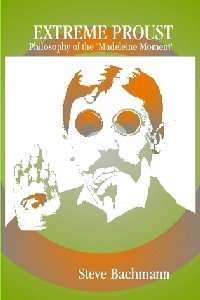WASHINGTON — President Nicolas Sarkozy of France left the summit meeting on the financial crisis here last weekend in a triumphal mood, declaring that it had tamed the animal spirits of American capitalism. Then he went home and announced that he would hold his own summit meeting in a few weeks in Paris — on the same topic.
That has raised hackles in diplomatic circles, not just because the meeting appears to compete with a planned gathering of 20 world leaders next April. Mr. Sarkozy’s aggressive statements have put American officials on edge, with some saying that he seemed determined to turn the global crisis into a referendum on the ills of untrammeled capitalism.
“Sarkozy claimed he put a bell on the American cat,” said Simon Johnson, a former chief economist of the International Monetary Fund. “He said the U.S. had agreed to a whole range of negotiations on regulations. But he didn’t actually come in and negotiate any of these things.”
Making matters worse, Mr. Sarkozy said nothing about his plans to convene a meeting to President Bush or the 18 other leaders while he was here. A senior European diplomat said he found the French proposal “amazing,” while an American official said that that would be a charitable description.
French officials said the gathering on Jan. 8 and 9, which is to be co-hosted by former British Prime Minister Tony Blair, is merely a conference, intended to bring together political leaders and prominent thinkers to discuss issues like globalization and the values of capitalism.
The surfeit of summit meetings reflects what has become a tense trans-Atlantic contest over the global economy. Much of this is posturing by ambitious leaders, but it also reflects a genuine philosophical debate about how best to fix the fractured global markets.
On one side is Mr. Sarkozy, the supercharged French leader, determined to keep the initiative on what many in Europe regard as a long-overdue discussion of the excesses of American-style capitalism.
On the other is Mr. Bush, playing out his final weeks in office but unwilling to allow Europeans, especially the French, to dominate the debate on how to overhaul international financial regulations.
Certainly, the two leaders had sharply different interpretations of what happened at the meeting. Mr. Sarkozy portrayed it as a shift in power, saying, “Europe for the first time expressed its clear determination.” Americans had “never, ever” been willing to negotiate these kinds of regulatory changes, he said.
Mr. Bush agreed that the meeting had been productive. But he noted that the leaders had reaffirmed the value of free markets, free trade and the primacy of national regulation — all hallmarks of American capitalism.
The timing of Mr. Sarkozy’s January meeting has ruffled feathers, even more than its agenda has, because the Group of 20 set out a detailed process to tackle regulatory reform. It assigned working groups to develop proposals on 47 issues, to be taken up later by the leaders, possibly in London.
At that meeting, President-elect Barack Obama will have a seat at the table. Mr. Obama will not, however, be in office during the Paris meeting, ensuring that the participants discuss the future of capitalism when the world’s leading practitioner of it is still in a transition.
Though the Élysée Palace, Mr. Sarkozy’s office, announced the meeting as an international summit, his aides emphasized that it was an informal gathering not connected to the G-20.
Among those planning to attend are two Nobel Prize-winning economists, Joseph E. Stiglitz and Amartya Sen. Mr. Blair is contacting world leaders, aides said, adding that it was too soon to say which ones would attend.
“It’s a joint idea of Tony Blair and Nicolas Sarkozy; they have had it on their minds for a while,” said a French official, who, like other officials, spoke on condition of anonymity because he was not authorized to speak publicly.
Mr. Sarkozy has had many ideas. He proposed last weekend’s meeting, though Mr. Bush rejected his idea to hold the talks in New York. American officials said it was Mr. Bush’s idea to expand the guest list to 20 countries, rather than the usual gathering of 7 or 8.
The common ground between Europe and the United States is greater than these public statements suggest. The United States has shown a willingness to accept regulation of a wide variety of institutions and markets, including credit default swaps — a form of bond insurance — and possibly private equity firms and hedge funds, that are not now regulated.
“People may have been surprised by the U.S. willingness to cooperate on issues,” said David H. McCormick, under secretary of the Treasury for international affairs.
Although the French favor a strong state role in the economy and are partial to regulatory agencies with cross-border authority, they did not propose such measures at the talks here. That was mainly because Britain and Germany had earlier resisted a supranational regulator.



